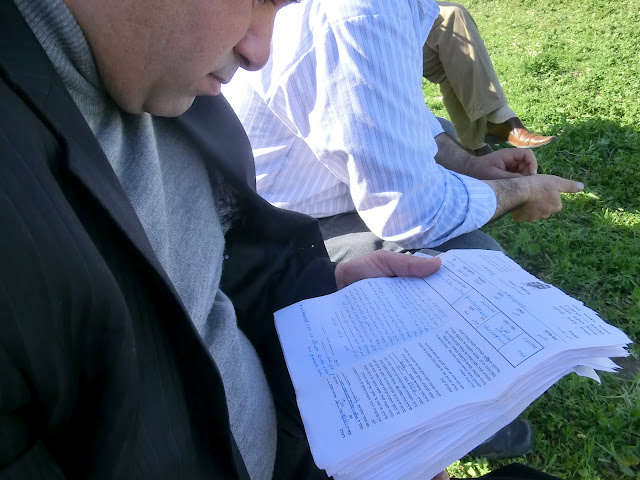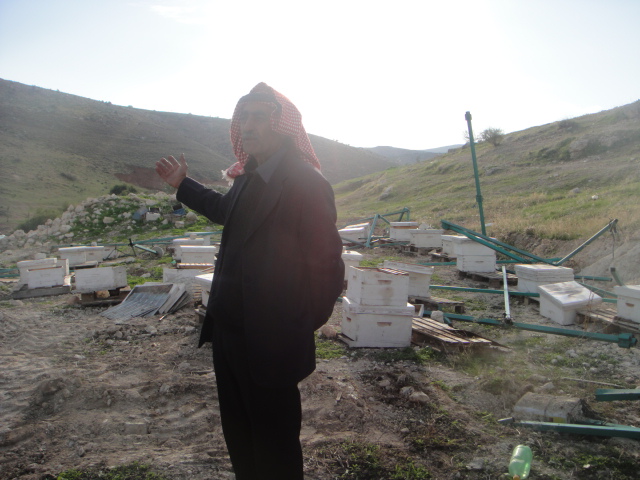Tag: Tubas
-
The Battle of Empty Stomachs: Khader Adnan highlights the consolation of solidarity
by Sylvia 24 April 2012 | International Solidarity Movement, West Bank On the 17th of April, Palestinian political prisoners launched a mass hunger strike against the Israeli Prison Service’s (IPS) dismissal of the Fourth Geneva Convention and basic international law. The call for action comes on Palestinian Prisoners Day after a wave of high-profile hunger…
-
Tubas: Israel robs the Jordan Valley dry
by Jonas Weber 8 February 2012 | International Solidarity Movement, West Bank On Saturday 5 February a delegation of activists from the International Solidarity Movement (ISM) went on a tour in the municipality of Tubas, 30 minutes by car to the south east of Nablus. At the municipality building of Tubas we were greeted by Marwan E. Toubassi,…
-
A wave of demolitions as Israel targets the Jordan Valley
by Lydia 30 November 2011 | International Solidarity Day, West Bank This morning at 7am the Israeli army entered the village of El Beida in the northern Jordan Valley with 10 military jeeps and one bulldozer. Israeli military proceeded towards Abu Tarek Fracka’s land where he houses a honey farm on the land where his…



